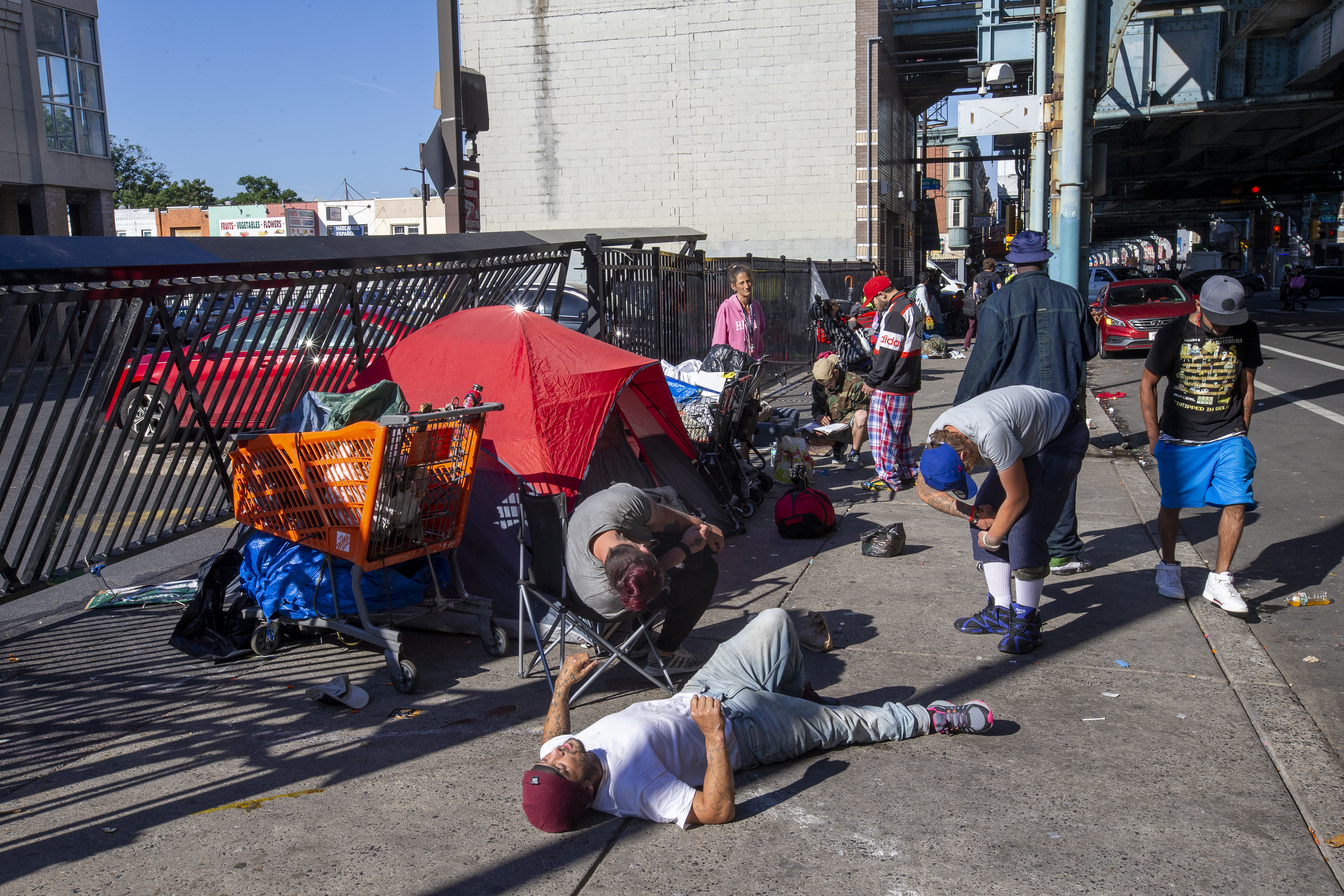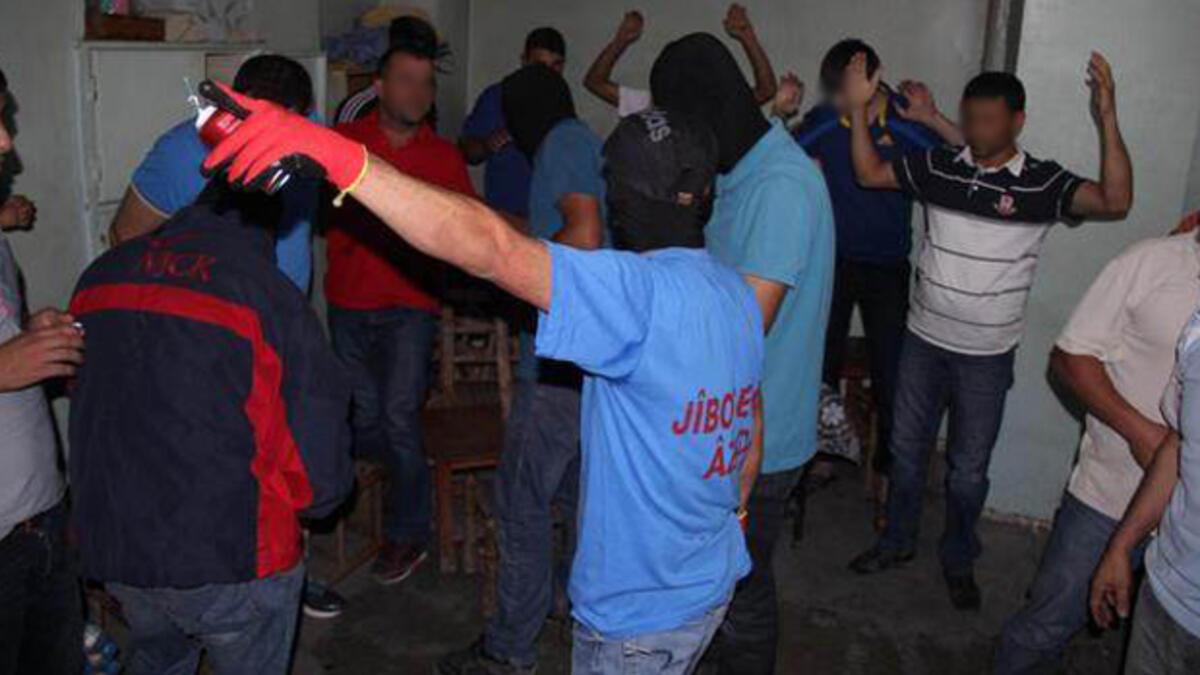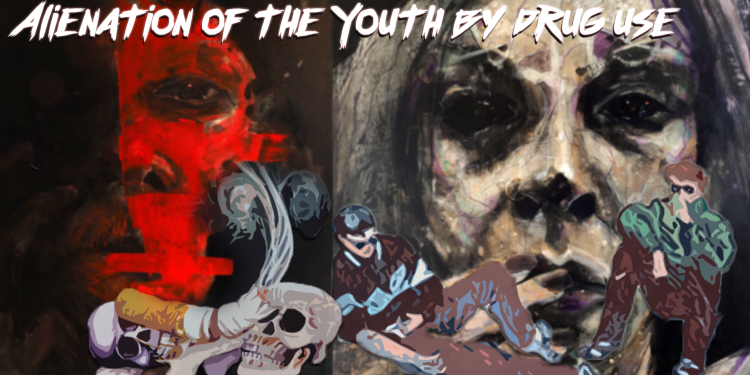NEWS CENTER – Drug consumption has become a true epidemic that mainly affects youth. There have never been so many drugs on the streets and so adulterated, this has created a calamity situation in public health in all parts of the world. At the same time, drugs, especially illegal ones, have become a true pillar of support for capitalism, either because of the profitable business that moves billions and finances mafias and state corruption, or because of their social role, attacking the working class as organized and conscious, especially the youth.
Faced with the barbarism that drug consumption has become and its consequences for society, revolutionary organizations, intellectuals, the church and the state have different proposals and opinions to solve the problem. From the release of consumption to police reinforcement in repression. Supporters fight and organize for the end of drugs and against their liberation, since drugs have a fundamental role in the alienation of youth and in the creation of a consumerist and dependent mentality, becoming essential obstacles for the development of a line revolutionary and ethical.
The social function of drugs
The issue of drugs is not approached by the left from a moral point of view as the churches do, anti-establishment organizations sometimes have an approach against drugs, it is not for ethics and in defense of the law. For Apoists, the revolutionary line is the ethical line. It is about ethics and revolutionary culture (Çand û exleq şoreşgerî). Despite not being a religious and moralistic approach, it is sometimes understood in such a way due to the influence of liberalism within the anti-systemic movements of our time.
Understanding drug consumption from a political standpoint, as well as the revolutionary task of emancipating the people, is crucial. The apoists’ fight against drugs is the result of the analysis of their social role, in addition to health factors. In this sense, drugs that affect judgment, behavior, perception and mood do not play the same role as, for example, tobacco (no matter how harmful this drug is for health).
Rêber APO, Abdullah Ocalan says the following:
“If you’re interested in a cigarette, if it doesn’t go against the organization’s most vital rule, I don’t see anything else to say to you. If your forces are not enough for simple work, give up being a revolutionary militant. We have to protect our humanity. We assume responsibility for this protection. You will take this seriously. Where will that understanding take you? The interest you show in a cigarette, we say, shows an interest in life that is worth its weight in gold. When you run out of breath, you shut yourself out. So how are we going to make you live? There is no other way to escape this reality of slavery. We cling too tightly to the facts.
You say; ‘I learned that I can’t stop smoking, I can’t stop it.’ His situation reminds some of those addicted to marijuana. Thus it becomes the liquidation motive (of the movement) and falls under its influences. This attitude of yours is wrong and very dangerous. It is not in vain that I explain these points that I am pointing out. We have high values and no one on behalf of the enemy has the power to put you in that situation. No demon has that trick anymore.”
The drug in its legal and illegal forms is part of an organized action to destroy youth. An instrument used by capitalist modernity to dismantle youth and workers’ organizations and destroy class consciousness and any attempt at struggle that may develop in youth. It is enough to observe the role played by crack in poor regions, especially with black youth in the USA, or what this drug has caused in the large urban centers of Brazil, Colombia, Chile, Kurdistan, Turkey, etc. those in a Lumpen situation (deprived of any kind of principle, a state of mind that is not restricted to social classes) without some conditions for interpreting reality and interfering in the destiny of their own lives.
Drugs destroy young people, transforming them into dependents on their own addiction, reaching a state of paralysis without any chance of conscious organization to face the oppression of class society. Today there are thousands of young people who, because of drugs, have become beings with almost no social relationships, who often reach a practically vegetative state, completely sick. Not long ago, the country that serves as a model for capitalism in its entirety, the USA, was the focus of international news on the topic of combating drug use and the social problems that are linked to it. It is saddening to see images of people thrown into the streets, without hope, without living conditions, like real zombies, under the influence of drugs like Opiod and Fentanyl.

Drugs are also a weapon used by the bourgeoisie in the class struggle, let’s take a practical example: In the 60s, a great resistance against the oppression of workers developed in the US black neighborhoods, giving rise to the creation of organizations such as the Black Panther Party . The US State Department combined repression against this movement with the massive introduction of cheap heroin (crack) in peripheral neighborhoods across the country (precisely the same heroin that the CIA bought from its allies in the Triangulo de Oro). Thus, imperialism managed to destroy the organization and mobilization capacity of black workers, and on the other hand, the physical and moral destruction of an entire generation continued. The massification of crack, planned by the CIA, provided the conditions for the defeat of the Black Panther movement.
This same tactic is used by the Turkish state in Northern Kurdistan, with the support of counter-revolutionary movements and their bourgeois interests, the state for years has facilitated the existence of mafias and organized crime in Kurdish territory occupied by Turkey. In 2013/2014, with the organization of self-defense youth (DGH and later YDG-H) with force in that territory, the sale and consumption of drugs were severely prohibited and fought since public policies of education and awareness about the true objective from the state to allow the spread of drugs in the region, to the revolutionary punishment of those who collaborated with mafia organizations linked to the Turkish state.

Therefore, understanding that the dissemination of drugs results in the destruction of youth and their organizational forms, the apoist militants must approach the drug problem as a defense of their existence as a class, including their own health. The drug is counterrevolutionary, a weapon of attack against youth and those organized in a revolutionary way.
The ‘legal drugs’
Drugs considered legal are often as or more harmful than some illegal drugs – from a health point of view, cigarettes can be considered more harmful than marijuana, for example. However, cigarettes and alcohol (legal drugs) have a social role that is totally different from what marijuana or crack is today.
Drinks and cigarettes are socially tolerated, they also serve as an instrument for destroying the foundations of revolutionary structures, perhaps not as much as illegal drugs do, but even so, they play an important role in demobilization and bad influence on the principles of the defense of ethics and revolutionary culture. Alcohol, in particular, is one of the main demobilizers of youth and workers, in the sense that alcoholism develops especially in the poorer classes and has a huge influence on their social role. Problems related to abuse, abandonment, excesses, aggressiveness and others, often have their roots in alcohol consumption as a way of escaping the reality in which a young person or worker finds himself.
This, in turn, recognizes that he is living an empty life created by capitalist modernity and when he does not find the alternatives to this reality in the way he expected, he sinks into alcohol consumption to anesthetize the anxieties and problems he faces in his reality. . Therefore, the only alternative to not falling into this brutal trap of the system is precisely to be organized in a revolutionary way and to recognize the special war that is carried out to normalize the consumption of legal and illegal drugs.
Drugs and Capitalism
Society has always consumed drugs, but it was a local consumption, generally moderate and often linked to ritual, religious and natural healing practices. The widespread use of drugs is a characteristic of capitalist society and it was only possible to develop in this way when the drug began to be produced in large quantities, gaining storage, conservation and transport conditions. That is, when the drug became a commodity.
The mass production of drugs began in the Industrial Revolution, when there were conditions for the massive distillation of alcohol to produce brandy and liqueurs and the development of techniques for the preparation of extracts from plant drugs. Opium was only converted into morphine and heroin from the 19th century onwards, and coca leaf into cocaine only at the beginning of the 20th century.
The production of drugs in large quantities needs a certain scale of agricultural production. However, the product resulting from this process does not serve to compose and add value to new products, on the contrary, it is a production that will only serve to numb the user without adding anything to the development of humanity, it is a product of no importance for development , without social importance – except as an instrument of domination.
The production of drugs in capitalism developed along with its commodification, with commodities produced massively in industrialized crops, with chemical transformations and the law of the market: the more you sell, the better the profits. Making drugs a significant part of world trade.
Already in 1997 the UN calculated that the world traffic of illegal drugs was around 400 million dollars, today, some economists calculate that the amount could reach U$ 800 million. Drugs are part of capitalism. The proliferation of drugs is one of the manifestations of barbarism in the decadent system of capitalist modernity. It shows the directions where capitalism leads humanity: its own destruction.




